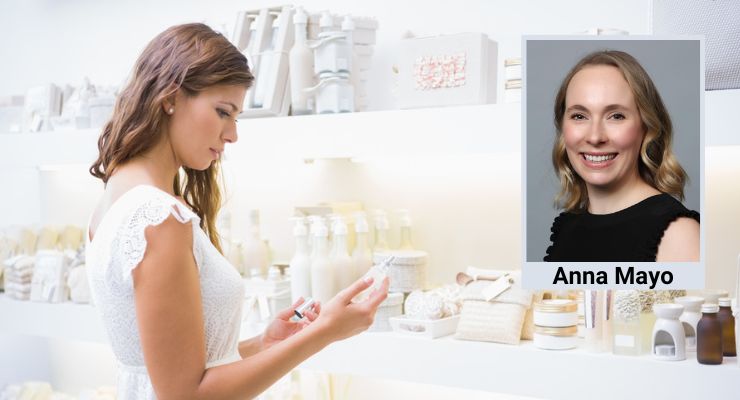Anna Mayo, VP Beauty Vertical NIQ01.08.24
Would you be surprised if I said dupes were actually strengthening the beauty industry? In the beauty space, "dupes" refers to alternative products that closely mimic the characteristics of higher-end or more expensive cosmetics and skincare items. These alternatives, often referred to as "dupes," are typically more affordable and accessible to a wider range of consumers. Dupe culture has gained popularity in recent years, largely due to the influence of social media and beauty influencers.
“Duper” brands—the affordable brands being used as alternatives—and the “duped” brands—the higher priced brands that tend to attract imitators—are both seeing dollar and buyer growth. The “dupers” saw a 2.9-point increase in household penetration, and a 2.3-point increase in repeat buyers. The “duped” brands saw a 2.3-point increase in household penetration, and a 1.4-point increase in repeat buyers.1
Though dupes are sometimes shown in a less flattering light, NIQ recently took a deep dive into dupe culture and found that dupes are actually growing the beauty category. Here are a few ways we’re seeing dupes help the industry grow:
Because dupes are generally more affordable, consumers feel more comfortable taking risks and trying out bold or unconventional products and styles.
Beauty dupes also provide consumers with the flexibility to customize their makeup routine. They can mix and match dupes to create a unique combination that suits their preferences. This customization fosters a sense of personalization and individuality in beauty routines.
Beauty dupes empower consumers to experiment by providing affordable alternatives to high-end products. This accessibility encourages creativity, risk-taking, and a more inclusive beauty culture, allowing individuals to express themselves through makeup and skincare without financial constraints.
Beauty dupes are beneficial for the beauty industry for many reasons, but primarily they enhance accessibility and affordability, allowing a more diverse range of consumers to participate in beauty trends. By offering budget-friendly alternatives to high-end products, dupes foster inclusivity, encourage experimentation, stimulate healthy competition among brands, and drive innovation. Ultimately, dupe culture contributes to a more dynamic and consumer-centric industry, where individuals can express their style without financial constraints, leading to a more engaged and satisfied customer base.
About the Author
Anna Mayo is VP of the Beauty & Personal Care Vertical at NielsenIQ. She is a frequent contributor to Beauty Packaging. Read her previous contribution to BP: “3 Reasons Why Indie Brands are Gaining an Edge in the Beauty Industry.”
References:
1 NIQ Omnishopper Panel, Total U.S. latest 52 weeks w/e 07/15/23.
2 NIQ BASES 2023 survey data
3 Dupeshop survey 2023
“Duper” brands—the affordable brands being used as alternatives—and the “duped” brands—the higher priced brands that tend to attract imitators—are both seeing dollar and buyer growth. The “dupers” saw a 2.9-point increase in household penetration, and a 2.3-point increase in repeat buyers. The “duped” brands saw a 2.3-point increase in household penetration, and a 1.4-point increase in repeat buyers.1
Though dupes are sometimes shown in a less flattering light, NIQ recently took a deep dive into dupe culture and found that dupes are actually growing the beauty category. Here are a few ways we’re seeing dupes help the industry grow:
Affordability
Dupes offer affordable alternatives that keep consumers in the category despite rising prices. Beauty is non-negotiable for many consumers, with 77% of skincare purchasers, 61% of fragrance purchasers, and 60% of cosmetics purchasers saying they will never stop buying from the category. With this, 46% of consumers state they will purchase less expensive products as a strategy to spend less on beauty.2Lower Barriers of Entry
Dupes encourage trial of new categories by lowering the cost of entry and encouraging experimentation 98% of shoppers stated that discovering dupes has expanded their regular beauty routine.3Because dupes are generally more affordable, consumers feel more comfortable taking risks and trying out bold or unconventional products and styles.
Quality
A quality product is important in the beauty space, but many may not be able to afford a high-end brand that’s known for its quality. With 44% of shoppers stating they bought dupes because they couldn’t afford the high-end products, it’s important that quality dupes are available for those who may not want to commit to an expensive product.3Experimentation
By offering affordable alternatives, dupes promote inclusivity within the beauty community. People from diverse backgrounds and incomes can participate in beauty trends and experimentation, reducing the exclusivity traditionally associated with high-end beauty products.Beauty dupes also provide consumers with the flexibility to customize their makeup routine. They can mix and match dupes to create a unique combination that suits their preferences. This customization fosters a sense of personalization and individuality in beauty routines.
Sustainability
Dupe culture isn't solely about saving money; it can also be driven by a desire for more ethical and sustainable options. Some consumers seek dupes for cruelty-free, vegan, or eco-friendly beauty products, promoting a shift towards a more conscious and sustainable beauty industry.Beauty dupes empower consumers to experiment by providing affordable alternatives to high-end products. This accessibility encourages creativity, risk-taking, and a more inclusive beauty culture, allowing individuals to express themselves through makeup and skincare without financial constraints.
Beauty dupes are beneficial for the beauty industry for many reasons, but primarily they enhance accessibility and affordability, allowing a more diverse range of consumers to participate in beauty trends. By offering budget-friendly alternatives to high-end products, dupes foster inclusivity, encourage experimentation, stimulate healthy competition among brands, and drive innovation. Ultimately, dupe culture contributes to a more dynamic and consumer-centric industry, where individuals can express their style without financial constraints, leading to a more engaged and satisfied customer base.
About the Author
Anna Mayo is VP of the Beauty & Personal Care Vertical at NielsenIQ. She is a frequent contributor to Beauty Packaging. Read her previous contribution to BP: “3 Reasons Why Indie Brands are Gaining an Edge in the Beauty Industry.”
References:
1 NIQ Omnishopper Panel, Total U.S. latest 52 weeks w/e 07/15/23.
2 NIQ BASES 2023 survey data
3 Dupeshop survey 2023













